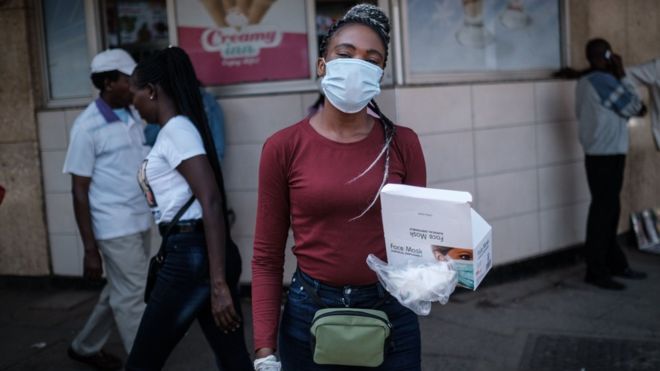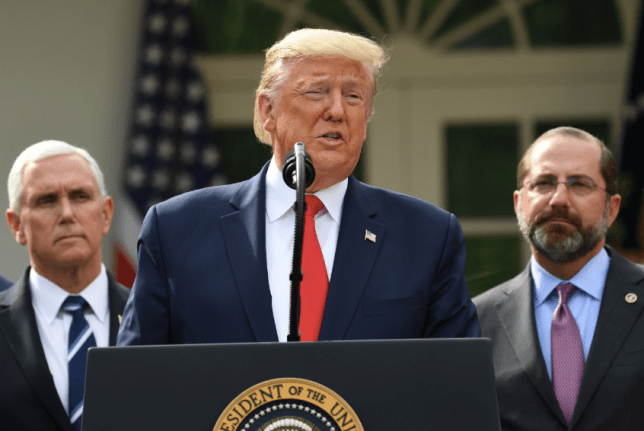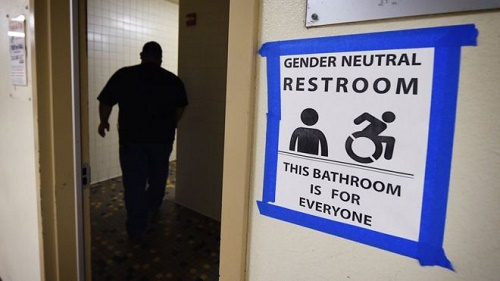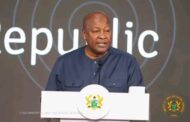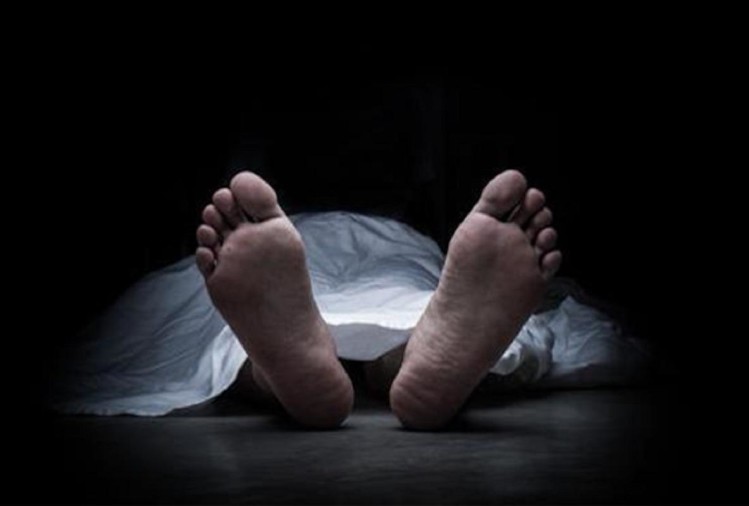Kenya has taken the opportunity of the coronavirus pandemic to promote cashless transactions, where it is already a pioneer.
The East African state’s largest mobile phone operator, Safaricom, has scrapped fees for mobile money transactions below 1,000 shillings ($10; £8) in order to encourage cashless payments.
“While the immediate objective is to reduce the risk of transmission of Covid-19 [coronavirus] by handling banknotes, this will also reduce the use of cash in the economy over the medium term,” the Central Bank of Kenya said.
This is just one of a raft of measures Kenya has put in place since reporting its first case on Friday – that of a 27-year-old woman who flew in from the US via London.
The country is in a partial lockdown after President Uhuru Kenyatta announced the closure of schools, and imposed sweeping travel restrictions.
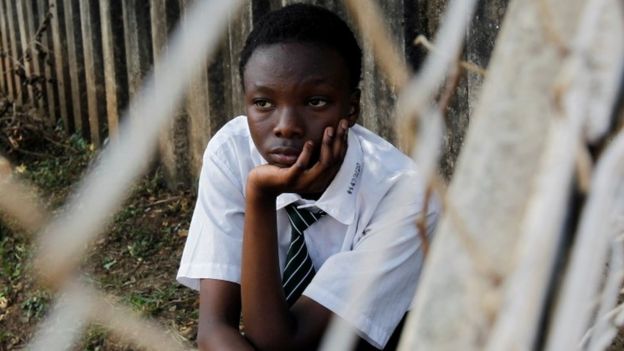
Travellers from any country with a single case of the virus have been barred from entering Kenya for the next 30 days.
Only Kenyans and foreigners with residence permits will be allowed in, so long as they agree to be quarantined.
‘Pandemic will test us’
The gravity of the crisis became clear when President Kenyatta decided to address the nation on Sunday, a non-working day. He was flanked by a coterie of cabinet ministers.
As the president approached the podium outside Harambee House, his office, he did not shake hands with any of them, setting an example on how to prevent the spread of the virus.
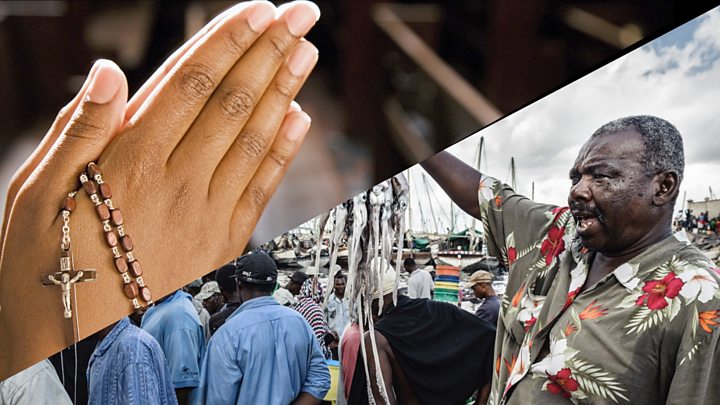
Mr Kenyatta announced that two more cases had been detected, from among the 27 people who had interacted with the first patient.
He ordered everyone who had entered Kenya in the last 14 days to self-quarantine, and said anyone with a cough or fever should be tested for the virus.
President Kenyatta rallied Kenyans to play their part in the effort to safeguard lives.
“This pandemic will test us, as it is testing all countries in every corner of the world, but I do not believe it will defeat us. If we pull together, and everybody does their part, we shall overcome its worst impacts,” he said.

- LIVE UPDATES: Follow the latest developments here
- TESTING: Can the US catch up?
- EASY STEPS: How to keep safe
- A SIMPLE GUIDE: What are the symptoms?
- TRAVEL PLANS: What are your rights?

The judiciary has announced its own measures to contain the pandemic.
The courts in Kenya will not be hearing any new cases. All appeals and hearings in criminal and civil cases have been suspended with immediate effect.
Accused persons in remand will not be presented in court either.
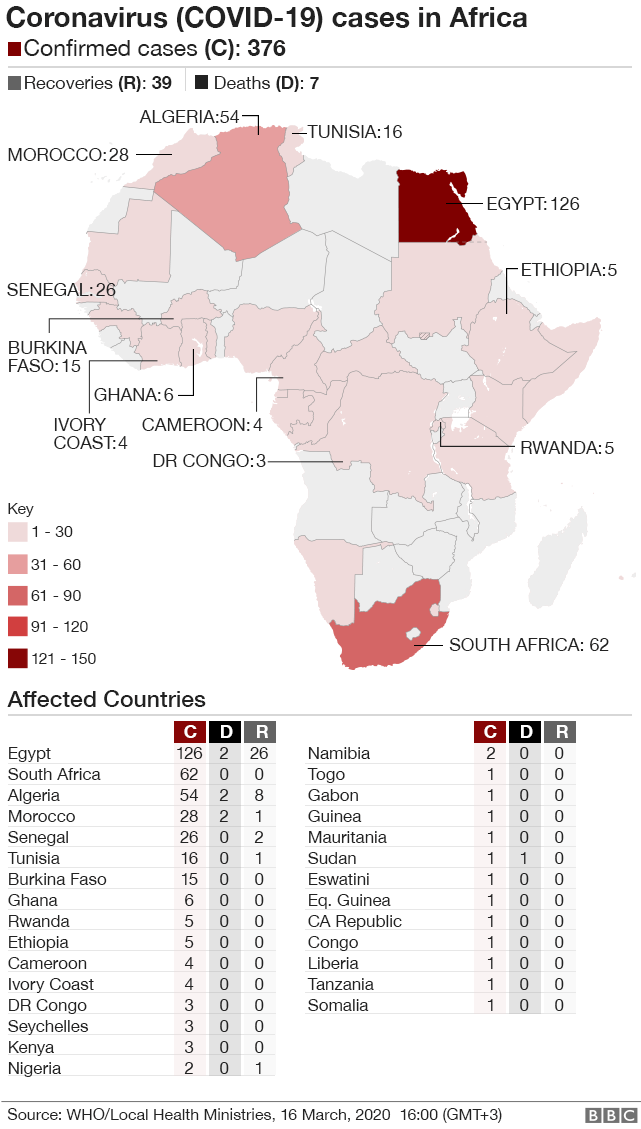
The measures address some of the concerns of Kenyans that not enough was being done to tackle the virus, but some feel that the measures are too extreme.
Happy teachers, angry nurses
One of the two large teachers’ unions, the Kenya Union of Post Primary Education Teachers (Kuppet) has praised the measures.
Akelo Misori, the union’s secretary-general, said the closure of schools would end the deep anxiety they had that the virus could spread in classrooms.
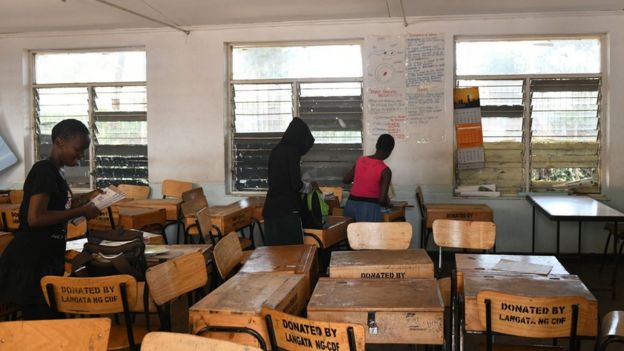
But worryingly, nurses have stopped working at a coronavirus isolation ward in the capital Nairobi.
Mbagathi Hospital is one of the main facilities with isolation wards for treating patients infected with the virus.
The Kenya National Union of Nurses (Knun) said the nurses would only report back to work once they had training on how to handle patients and received protective gear.
“Nurses are the most exposed workers in hospitals,” union secretary general Seth Panyako said.



